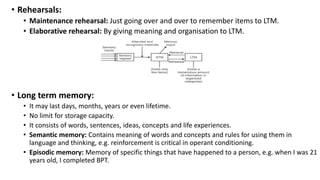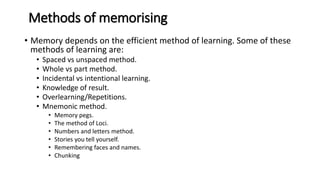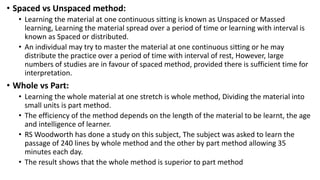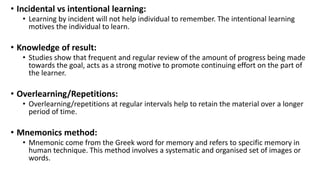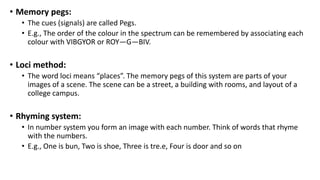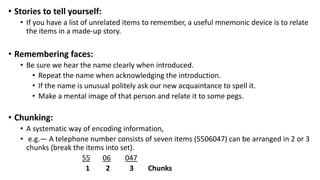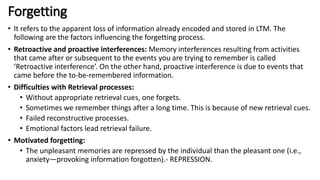This document provides information about memory for physiotherapy and nursing students. It defines memory as the reproduction of past experiences without the presence of the original stimulus. It discusses the nature and types of memory, including sensory memory, short-term memory, and long-term memory. It also covers factors that influence memory like age, intelligence, motivation, and sleep. Developmental theories of memory like the information processing theory are explained. Different methods for memorizing information are outlined, such as the spaced repetition method and chunking. Factors that can lead to forgetting, like interference and failed retrieval processes, are also described.
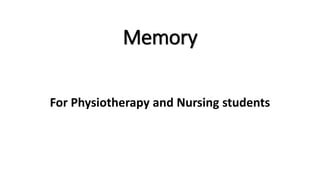
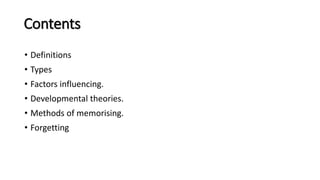
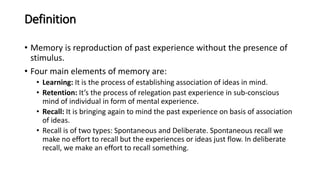
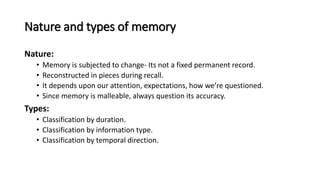
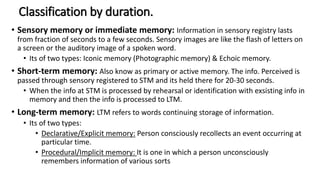
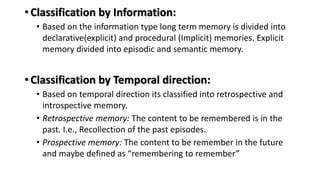
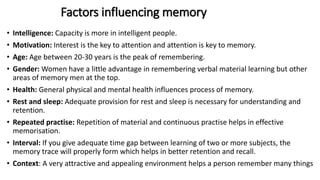
![Developmental theories
• Simple memory theory:
• Encoding: It is the process of receiving sensory inputs and transferring it into
a code.
• Storage: It is the process of actually putting the coded information into
memory.
• Retrieval: It is the process of gaining access to the encoded, stored
information when it is to be used.
• Information-Processing Theory (Atkinson and Shiffrin)
• It emphasizes the processing of information in stages or steps.
• Sensory register.
• Short-term memory [STM].
• Long-term memory [LTM]](https://image.slidesharecdn.com/14-220820052708-03348cbe/85/Memory-Psychology-pptx-8-320.jpg)

